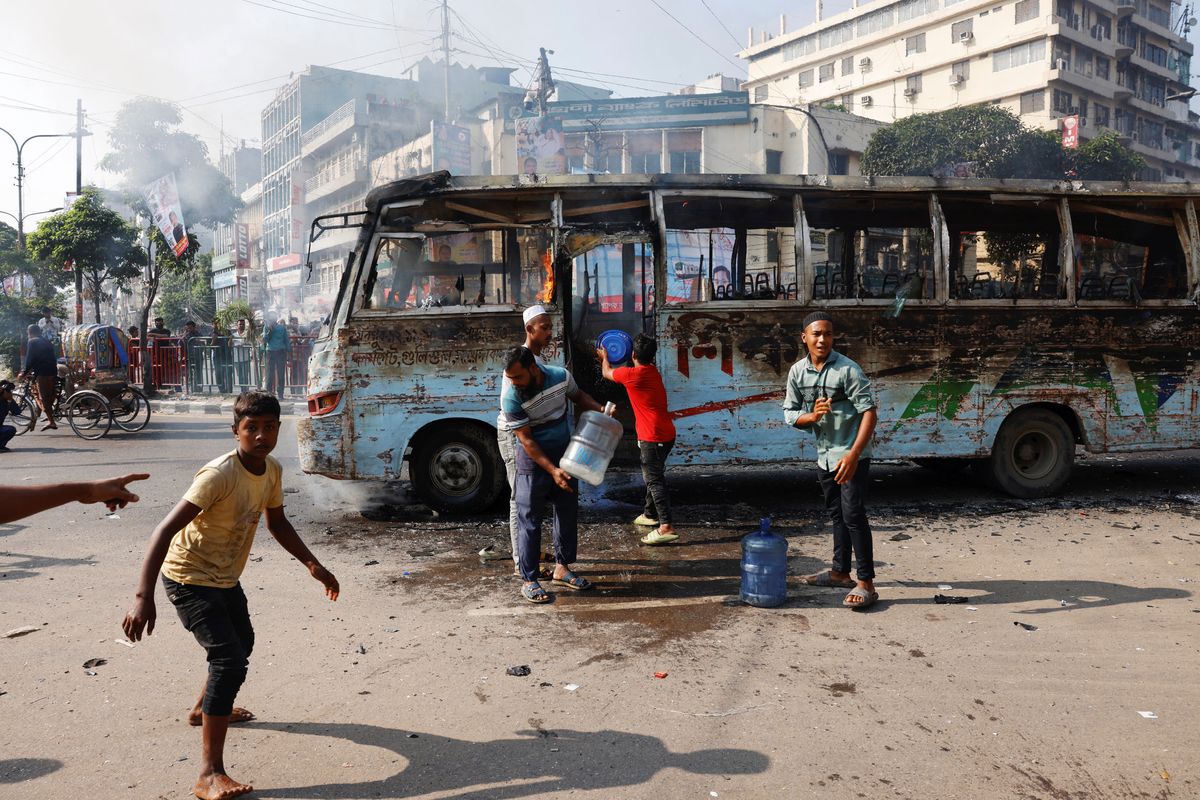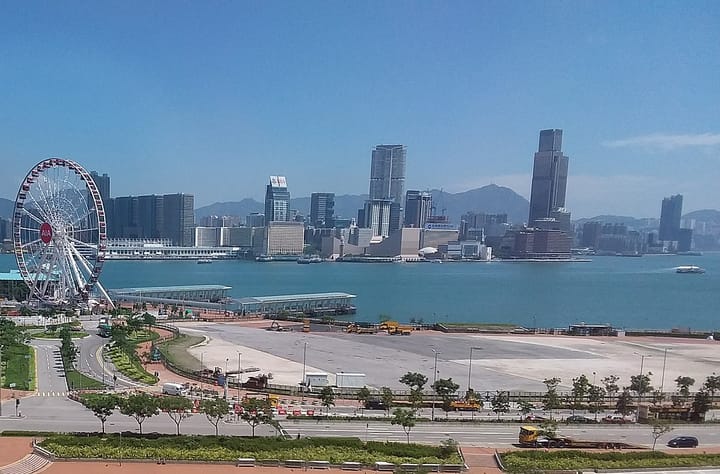Protests in Bangladesh turn violent
On Saturday, BNP and Bangladesh Jamaat-e-Islami organized a giant rally in the capital, Dhaka.

A few minutes every morning is all you need.
Stay up to date on the world's Headlines and Human Stories. It's fun, it's factual, it's fluff-free.
The backstory: Prime Minister Sheikh Hasina has held power in Bangladesh since 2009, leading her party, the Awami League. Her government has been accused by critics of authoritarianism, human rights violations, limiting free speech and suppressing dissent. In both the 2014 and 2018 national elections, Hasina’s government was accused of fixing the vote and snuffing out the opposition. She’s denied these allegations.
More recently: There have been more and more calls for Bangladesh to hold freer and fairer elections coming from the West. In May, the US announced that it would start levying visa sanctions on Bangladeshis who try to hurt the country’s democratic process.
This coming January, Bangladesh is hosting its next national election. Opposition parties, like the biggest one, Bangladesh Nationalist Party (BNP), and the country's largest Islamist party, Bangladesh Jamaat-e-Islami, are calling for Hasina to step down. They want her to resign to let a neutral caretaker government oversee the next election. But, she’s refused, saying that the nation’s top court has ruled a caretaker system illegal.
The development: On Saturday, BNP and Bangladesh Jamaat-e-Islami organized a giant rally in the capital, Dhaka. An estimated more than 125,000 supporters showed up for this anti-government protest, demanding that Hasina stand aside. Opposition leaders told the crowds to stay peaceful, but Dhaka police are saying that some of the protesters threw rocks at them, vandalized their police cars and even set fire to the cars. BNP protesters also reportedly attacked a bus carrying members of the Awami League.
Cops fired tear gas and sound grenades at the demonstrators to break the whole thing up. In all of the chaos, at least a hundred protesters were injured, and one policeman died. Opposition leaders are accusing police of triggering the clashes by firing tear gas. Shortly after these events, police charged over 100 members of the BNP with the murder of the police officer who was killed. Opposition leader Mirza Fakhrul Islam Alamgir was arrested. There’s now growing concern that there will be more violence as the election nears.
Key comments:
"Today's rally continued for hours in a perfectly disciplined and peaceful manner until all of a sudden the lobbing of tear gas shells started," senior BNP leader Abdul Moyeen Khan told Reuters. "The intensity increased, and violent attacks with sounds of blasts and shootings turned the whole place into a war zone."
"The party leadership remained on the stage urging for a peaceful gathering until the very last moment! However, we were compelled to vacate the stage when the police and the ruling party supporters came attacking our gathering. We had to defend ourselves," BNP’s Joint General Secretary Syed Moazzem Hossain Alal told VOA. "Hundreds of BNP activists got injured by the brutal attacks by the police and the Awami League supporters. They had been planning for the attacks to foil our rally for days," he added.
"At least 164 Bangladesh Nationalist Party (BNP) including Mirza Fakhrul Islam Alamgir were accused of murdering the police officer," police official Salahuddin Mia said on Sunday.
“Today BNP wants to oust the government. They are giving various types of threats to launch a movement ... No threat will work,” Prime Minister Sheikh Hasina told a rally at Anwara in Chattogram, where she inaugurated a Chinese-built underwater tunnel.




Comments ()